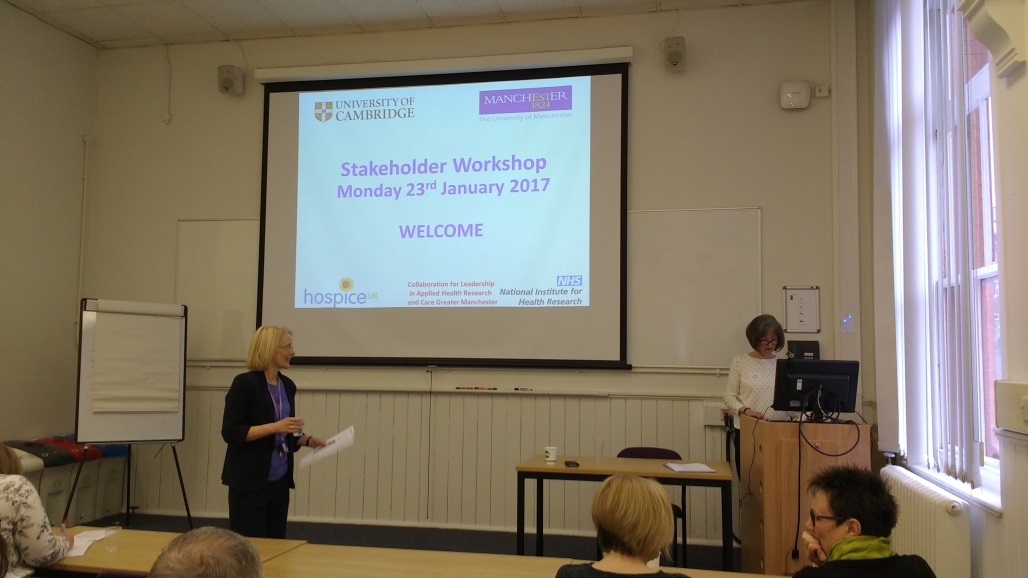Developing Benchmark Standards to Assess and Support Carers at End-of-Life
In this blog, Zoe Ashton, a CLAHRC Greater Manchester Facilitator, provides an update on this key project following a series of stakeholder workshops held last month.
The importance of supporting family carers is widely acknowledged in palliative care and part of the ethos of the hospice movement; however, this is often not yet happening routinely in practice. CLAHRC GM and Hospice UK are jointly funding a project with the University of Manchester and the University of Cambridge that aims to develop a set of recommendations on standards for assessing and supporting carers during end-of-life care.
Data from policy documents, previous research interviews, and focus groups with staff involved in supporting carers has provided insights into structures and processes that need to be in place for organisations to be able to consistently assess carers’ needs and provide support. Recently, two workshops were held to discuss these in detail and were attended by professionals and carer representatives with interest in supporting carers, or expertise in end-of-life care across hospital, hospice, community nursing and charitable sectors. While the research team are analysing the data to pull together the draft standards, I would like to share some of the issues I noted which were common across the different sectors during the discussions. The following points are not part of the draft standards themselves, but are potential issues in delivering support.

Throughout the discussions there was widespread agreement that organisations need to work together better to support patients and carers, whether by sharing information, simplifying referral pathways or working together to provide services. Some of the problems discussed included that services often carry out assessments specific to their own organisation, each collecting different data, and often covering different geographical areas, leading to patients and carers having a series of assessments as the information is not always shared.
Across many settings it was felt that it was a difficult time to introduce new initiatives to support carers and for it to be maintained due to staffing problems, constant change and competing priorities. When priorities change there can be a loss of impetus or even a backwards slide in improvements gained.
The workshops, the focus groups and the previous research before them are building a rich picture of the complex situation with no easy answers, however, it is clear there is a real belief that carer support is important, and much great work is already happening in this area despite the difficulties. It is hoped that the standards produced from this research will enable a better understanding of how to implement carer assessment and support, and what is currently happening in England.
More information
Blog author: Zoe Ashton, Research Facilitator. For more information about this project and our End of Life work, please contact Michael Spence, Programme Manager.
Date Published: 21/02/2017